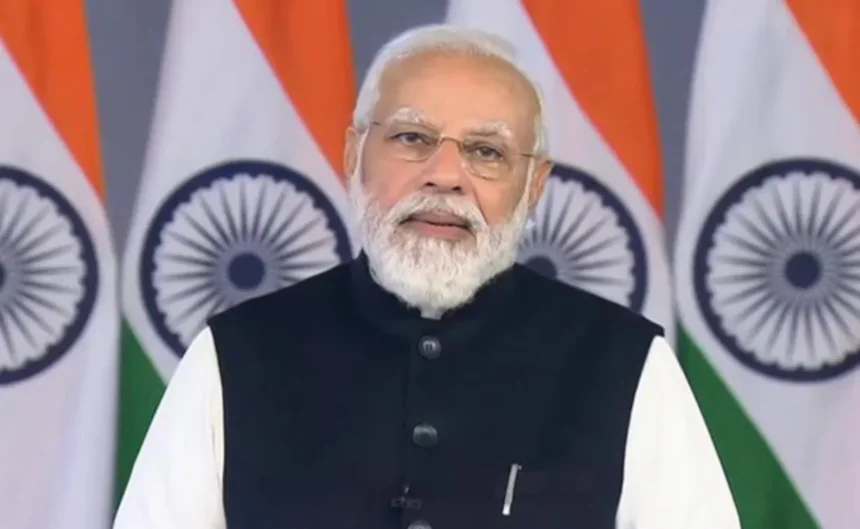In a gesture that holds immense significance for the local carpet industry, Prime Minister Narendra Modi’s act of gifting a hand-made Kashmiri silk carpet to the president of the French National Assembly during his visit to France has ignited hopes among hundreds of carpet makers in Kashmir. This act is seen as more than a mere exchange of gifts; it is viewed as a powerful advertisement for the traditional craft and a potential catalyst for the revival of the declining industry.
Over the past decades, the Kashmiri carpet industry has experienced a significant decline, struggling to compete with modern manufacturing techniques and facing various challenges. However, Modi’s gesture has brought renewed optimism to carpet makers who believe it could provide the much-needed boost to revive the local industry.
Shahnawaz Ahmad Sofi, a carpet unit holder, expressed his enthusiasm for the Prime Minister’s action and its potential impact. He stated, “We have witnessed the downfall of Kashmiri carpets in the past decades, but steps like these will undoubtedly give a substantial boost to the carpet industry.” Sofi’s sentiments echo the sentiments of many others in the region, who perceive Modi’s gift as an endorsement of the craft’s rich heritage and exceptional craftsmanship.
Kashmiri silk carpets have a long and illustrious history, renowned for their intricate designs, vibrant colors, and superior quality. The unique blend of traditional techniques and artistic finesse has made them sought-after worldwide. However, the industry has faced several challenges in recent years, including the competition posed by cheaper machine-made alternatives and the political unrest that has impacted the region’s economy.
Modi’s decision to present a hand-made Kashmiri silk carpet to a prominent French dignitary serves as a powerful marketing tool, showcasing the artistry and elegance of Kashmiri carpets to an international audience. This act of diplomacy not only strengthens bilateral relations but also creates an opportunity for the industry to regain its lost glory.
The gesture by Prime Minister Modi carries immense symbolic value. By choosing to gift a Kashmiri silk carpet, he highlights the cultural and economic significance of this traditional craft. The exchange of cultural gifts between nations is an age-old tradition that fosters mutual understanding and appreciation, and in this case, it shines a spotlight on the exquisite artistry and craftsmanship of Kashmiri carpets.
Moreover, the timing of this gesture is crucial. As the industry faces numerous challenges, such as dwindling demand and the need to adapt to changing consumer preferences, Modi’s act brings attention to the craft at a global level. It presents an opportunity for international buyers and enthusiasts to discover and support the unique beauty of Kashmiri silk carpets.
While one act alone cannot single-handedly revive an entire industry, the gift has the potential to create a ripple effect. It serves as a catalyst for awareness, creating a buzz around the art form and generating curiosity among potential buyers. This renewed interest could lead to increased demand for authentic Kashmiri silk carpets, thus providing a lifeline for local carpet makers.
Furthermore, the government’s support and encouragement are crucial for the sustained growth of the industry. By acknowledging the significance of Kashmiri carpets and promoting their value, the government can create a conducive environment for the industry to thrive. This includes providing financial assistance, facilitating skill development programs, and promoting marketing initiatives to showcase the craftsmanship to a broader audience.
Prime Minister Modi’s gesture of gifting a hand-made Kashmiri silk carpet to the president of the French National Assembly has breathed new life into the hopes of hundreds of carpet makers in Kashmir. This act not only symbolizes cultural exchange but also acts as a potent advertisement for the struggling industry. By highlighting the artistry and elegance of Kashmiri carpets on an international stage, this gesture has the potential to rekindle interest and revive the declining industry. It is now imperative for the government and stakeholders to seize this opportunity and provide the necessary support for the sustained growth of the Kashmiri carpet industry.









